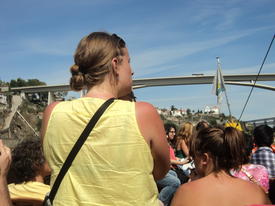Confused - sodium vs. salt
Options

sannsk
Posts: 203 Member
Hi,
This morning, I bought frozen shrimps to make spring rolls for dinner, and this was what the nutritional info told me (for 100g)
57 cal
0.773 g Sodium
2.2 g salt
I always assumed sodium/natrium was the same thing as salt, but this got me wondering. Is is something different? Is this because it's something from the sea, causing it to contain (i'm guessing here) salt that isn't sodium/natrium. Or is sodium a component of Salt?
And which do I need to track to stay healthy?
This morning, I bought frozen shrimps to make spring rolls for dinner, and this was what the nutritional info told me (for 100g)
57 cal
0.773 g Sodium
2.2 g salt
I always assumed sodium/natrium was the same thing as salt, but this got me wondering. Is is something different? Is this because it's something from the sea, causing it to contain (i'm guessing here) salt that isn't sodium/natrium. Or is sodium a component of Salt?
And which do I need to track to stay healthy?
0
Replies
-
Sodium is a mineral in salt. Salt is made up of sodium and chloride.. 40% sodium and 60% chloride. You track sodium.0
-
Well, if I remember from my chemistry days Salt is Sodium Chloride (NaCl). I always assumed Soduim and Salt were two different ways of referring to the same thing. Looks like we're both wandering down that wrong garden path together. Saying that, I don't track either.
I get confused where salt is concerned. These days it all seems to be about eat less salt. you're all eating too much salt. Salt is bad for you! - however when I was younger and windsurfed a lot the advice was "Make sure you get enough salt in you. If you don't have enough salt in your diet you'll get cramp, then you're really f$%^ed!'
So I ate salty stuff and didn't drown at sea. Seems like a result to me...0 -
Ok, Sodium should be tracked, then :-)
Thanks for clearing that up!
also, I think the amount of salt needed changes when you do sports like windsurfing.0 -
Table salt is sodium chloride, NaCl (in chemistry, there is a whole class of compounds called 'salts', but all you need to worry about is table salt). What's confusing is why it listed both of them on the label!
Also, as far as sports and salt are concerned, NaCl is an electrolyte (it breaks into two oppositely charged ions when it dissolves in water, and the resulting saltwater solution is conductive). When you sweat, your body loses salt as well as water, so you need to make sure you replace it. How much you need really depends on how hard you work along with a whole slew of other factors.0
This discussion has been closed.
Categories
- All Categories
- 1.4M Health, Wellness and Goals
- 396.7K Introduce Yourself
- 44.2K Getting Started
- 260.8K Health and Weight Loss
- 176.3K Food and Nutrition
- 47.6K Recipes
- 232.8K Fitness and Exercise
- 450 Sleep, Mindfulness and Overall Wellness
- 6.5K Goal: Maintaining Weight
- 8.7K Goal: Gaining Weight and Body Building
- 153.3K Motivation and Support
- 8.3K Challenges
- 1.3K Debate Club
- 96.5K Chit-Chat
- 2.6K Fun and Games
- 4.5K MyFitnessPal Information
- 16 News and Announcements
- 18 MyFitnessPal Academy
- 1.4K Feature Suggestions and Ideas
- 3.1K MyFitnessPal Tech Support Questions


